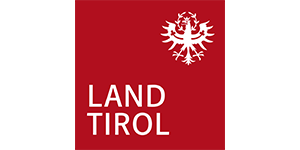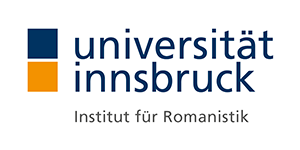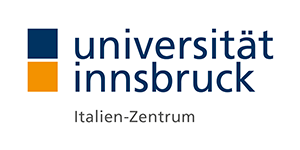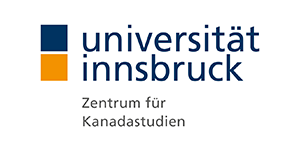INNCONTRO International Film Festival of Multiplicity 2019 brings stories and voices about work in the context of migration to the big screen. Six carefully selected films invite us to a nuanced, discursive examination in which individual aspects of the topic are questioned and common stereotypical views and opinions are reflected upon. The festival opens once again with a film, that provides a historical view onto work in the context of migration, as well as illustrating its importance for our presence: Fatih Akin’s documentary Wir haben vergessen zurückzukehren (2000) allows intimate glances into the period of guest worker migration as part of our contemporary history. New films – including three Tyrolean and two Austrian premieres – show the individual consequences of the European border regime and the global conditions of labour migration. These aspects and beyond will be discussed with the attending filmmakers and the invited experts.
Migration within and to Europe is neither a new, contemporary, nor modern phenomenon. It is rather historical normality. In the middle of the 20th century Europe’s migration policy became strongly linked to the industrial demand for foreign labour. However, the recruitment of the so called “guest workers”, whose stay was initially intended to be temporary, didn’t just bring workers into the country, but people, who built a life for themselves and still shape European society today – as part of it.
In his first, very personal documentary Wir haben vergessen zurückzukehren Fatih Akin tells the story of his parents, who came to Germany from Turkey as “guest workers” and, as the title suggests, forgot to return. The film was produced as commissioned television work in the year 2000 and is this year’s opening film at INNCONTRO Film Festival. The film serves a place of memory for a shared history, the depiction of which is often neglected. It is as much an offer for a collective memory, as well as a reminder of the everyday nature of racism. Therefore, the film also acts as a starting point for questioning the present: What has changed in Europe since then? What positions do filmmakers worldwide take on the tissue of labour migration? What challenges are they faced with during production and how do they take them on?
On Saturday INNCONTRO Film Festival will end with exploring a question, rarely asked in the context of” guest work”: The autobiographic documentary Xalko (2018) by Sami Mermer in collaboration with Hind Benchekroun paints atmospheric portraits of landscapes and people, giving a voice to those who were left behind, having to secure their livelihood on their own – mostly women, children and the elderly. What are their experiences like? How does the relationship to their relatives abroad change ? And what does the term “home” really mean to those, who are faced with the option of return in their retirement?
Beginning in the last few decades of the 20th century to the present-day European immigration laws have become increasingly restrictive. Besides European internal migration, people primarily migrated as a result of the Balkan war and politically unstable conditions in some African, Middle Eastern and Asian countries, in the development of which, some European countries were not entirely blameless. Most recently, due to the war in Syria many people sought refuge in neighbouring countries – and significantly less eventually made their way to Europe. In addition, the effects of structural adjustment programmes, such as austerity, privatisation and deregulation policies demanded by the IMF and the World Bank play a major role, depriving millions of people in countries of the Global South of their livelihoods and eventually forcing them to migrate.
The collaborative film project Era Domani (2018) by Italian filmmaker and anthropologist Alexandra d’Onofrio shows how challenging escape, arrival and the processing of those experiences are. Using a variety of techniques and in close collaboration, d’Onofrio documents Mahmoud Hemida, Ali Henish, Mohamed Khami from Egypt in their process of overcoming their past. Era Domani provides an opportunity to deconstruct the concept of work, to address biographical work and to discuss the process of creating film realities. In this collage of performance, photography and animation the boundaries between filmmakers and participants begin to blur, which allows questions on a meta-level:
While the importance of nation states in a globalized world economy is beginning to change and capital, goods and services are moving freely between liberal markets, the migration of people however is controlled and regulated more than ever before by the nation state’s fixation on borders. Mobility is only available to very few groups of people: Experts are actively recruited and motivated to move through higher wage standards, which leads to the so called “Brain drain” in their countries of origin. At the same time illegal workers are often hired for unattractive, arduous and sometimes dangerous jobs, such as for work in the care sector, seasonal work, logistics, cleaning and gastronomy. Following neoliberal logic, those jobs are often enough only temporary.
Some of those work realities are impressively taken on by Rosine Mbakam, Ziad Kalthoum and Maren Wickwire in their documentaries and manage to show the gender-specific characteristics of various jobs.
In her film Together Apart (2018) anthropologist and filmmaker Maren Wickwire portrays Carren Pacuyan and Guil Ann Simeon, mother and daughter, who both left their Philippine homeland as young women, in order to find work in Cyprus as household staff – in hopes of a better future for themselves and their families. Together Apart raises questions about the consequences of women’s international care chains, transnational family relationships, mostly unacceptable working conditions and possible counter-strategies.
“Dedicated to all workers in exile” is the award-winning and visually stunning documentary film Taste of Cement (2017) by Syrian director Ziad Kalthoum. Kalthoum has a moving escape story of his own. He deserted from Syrian military service and hid for months in Damascus before fleeing to Lebanon. Taste of Cement was created there on a large construction site and superficially documents the working conditions of Syrian construction workers. The film paints a dramatic picture of the simultaneity of the destruction during war and the reconstruction on the building site, which determines the everyday life of the marginalised men separated from their families.
Rosine Mbakams Chez Jolie Coiffure (2018) offers another profound insight into the working reality for Sabine Amiyeme, who, despite being in Brussels illegally, has managed to open her own hair salon in Matongè. Filmed in a space as small as 8m2 and using multiple mirrors as tools, Mbakams manages to illustrate an intimate portrait of a microcosm, the outside of which only becomes tangible through conversations inside the salon. Naturally, questions arise: How much of the retreat into a community is self-chosen? Which possibilities open up in a safe environment, which remain closed?
Local work contexts are shaped by global conditions and in turn influence the possibilities and opportunities of each and every individual: In societies in which income, participation and life chances are linked to (gainful) employment, social integration becomes one of the most important functions of said society. Accordingly, gainful work not only plays a role if employment is the motive for migration, but also becomes a factor in every individual migration process.
In addition, precarious working conditions must also be recognized in their potential for social transformation: Local work contexts can function as contact zones, as social places of resistance and struggle, where power relations are questioned and negotiated, but also as places of encounter and understanding, where exchange is possible and (social) stereotypes and racism can be counteracted. A special focus of the INNCONTRO Film Festival lies on the discursive embedding and thus also on questions of the actor’s capacity to act, their strategies of resistance and reinterpretation.
Translation by Jana Walch



















Kontakt
INNCONTRO Film Festival
c/o Initiative Minderheiten Tirol
Zollerstraße 7
mail@inncontro.com
Filmfestival